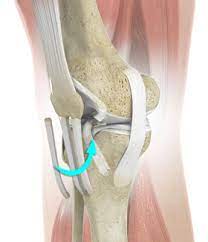ACL (BPTB) and Meniscectomy
India
-
Our Price USD 2250
-
Hospital Price USD 2500
-
You Save : USD 250
Booking Amount: USD 225. Pay Remaining 90% at the hospital.
Book NowAdditional Credit
Among the important extras we offer as part of the Additional Credit are the following:
-
Site Tourism For The Patient & Attendant
-
Airport Pick & Drop Service
-
Ambulance service at airport
-
Priority appointments with The Doctor
-
Cancel Easily Anytime with Full Refund
-
Room Upgradation
-
Free Online Doctor Consultation Valued at USD 20
-
Free hotel Stay for 5 to 7 days Accordingly
-
Welcome Kit at Arrival
-
Interpreter
-
Medical Visa Assistance
What is Included?
- Doctor consultation charges
- Lab tests and diagnostic charges
- Room charges inside hospital during the procedure
- Surgeon Fee
- Cost of implant
- Nursing charges
- Hospital surgery suite charges
- Anesthesia charges
- Routine medicines and routine consumables (bandages, dressings etc.)
- Food and Beverages inside hospital stay for patient and one attendant.
What is not Included?
- Extra Radiology Investigations
- Healthcare Professionals Charges of other consultations.
- Other Requested Services such as Laundry etc.
- Additional Pharmaceutical Products and Medicines After Discharge from Hospital.
- Management of Conditions Unrelated to Procedures or Pre-Existing.
- The cost of any additional implants will be in addition to the package cost.
Package Description
ACL (BPTB) and Meniscectomy:
The ACL (anterior cruciate ligament) reconstruction and repair of a torn meniscus are two of the most common arthroscopic operations. These structures have different purposes within the knee. The ACL aids in the stabilisation and support of the joint. In the knee, there are two menisci.
Disease Overview:
ACL & MCL Injury
Bones, ligaments, tendons, and cartilage make up your knees. The medial collateral ligament (MCL) is an eight to ten centimeter-long ligament on the inside side of your knee. It joins the thigh bone (femur) to the shin bone (tibia) (tibia). Your MCL also gives your knee joint strength and stability. It's one of your knee's four major ligaments. The following are the other three main ligaments:
- The anterior cruciate ligament (ACL) is a ligament that connects the knee (ACL).
- The lateral collateral ligament (LCL) is a ligament that connects the (LCL).
- The posterior cruciate ligament (PCL) is a ligament that connects the knee (PCL).
"Towards the middle or Centre" is what the word "medial" denotes. The term "collateral" refers to a ligament that is located on one side of a joint.
The medial collateral ligament is called for the fact that it is placed on the inside side of your knee (closer to your body's "middle line") and on the side of your knee joint. A rupture or sprain of the anterior cruciate ligament (ACL) — one of the strong bands of tissue that connects your thigh bone (femur) to your shinbone — is known as an ACL injury (tibia). ACL injuries are most frequent in sports like soccer, basketball, football, and downhill skiing, which entail rapid pauses or changes in direction, jumping, and landing. When an ACL damage occurs, many patients hear a pop or experience a "popping" feeling in their knee. It's possible that your knee will expand, become unstable, and become too painful to bear weight on.
An MCL tear occurs when the medial collateral ligament, a key ligament on the inner side of your knee, is torn. The tear might be partial (just a few ligament fibres are destroyed) or full (the entire ligament is ripped) (the ligament is torn into two pieces). A ligament is a strong band of tissue that links two bones or keeps organs in place.
Your MCL tear will be classified as one of three grades by your healthcare provider:
Grade 1: A grade 1 MCL tear is a minor rip in which less than 10% of the ligament fibres are destroyed yet the knee remains stable. If you have a grade 1 tear, you will most likely experience discomfort and minor pain.
Grade 2: A grade 2 MCL tear is a significant rip in which portion of your MCL is damaged — generally the surface area of your MCL. When you move your knee by hand, it will most likely be loose, and you will most likely experience extreme pain and soreness along the inside side of your knee.
Grade 3: A grade 3 MCL tear is a severe tear in which both the superficial and deep parts of your MCL are torn. Your knee will most likely be unstable and loose, and you will most likely be in a lot of pain and agony. If you have a grade 3 MCL rupture, you're likely to have further knee ailments, including damage to your anterior cruciate ligament (ACL).
An MCL tear can strike anyone at any age. MCL tears are prevalent among athletes, particularly those who participate in activities such as football, rugby, basketball, and skiing.
Disease Signs and Symptoms:
The following are common signs and symptoms of an ACL injury:
- The sensation of a loud pop or "popping" in the knee
- Pain that is unbearable and makes it impossible to continue doing things
- Rapid enlargement
- Range of motion loss
- With weight bearing, a sense of instability or "giving way"
The symptoms of an MCL tear vary depending on the severity of the tear. You may notice the following indications and symptoms if your MCL (medial collateral ligament) is torn:
- popping sound At the time of the injury.
- having pain with your knee.
- Experiencing tenderness on the inside of your knee.
- Experiencing knee stiffness and edoema.
- Though you put weight on your knee, it feels as if it will "give out."
- Feeling a lock in your knee joint
Disease Casues:
Ligaments are strong tissue bands that join two bones together. The ACL links your thighbone to your shinbone and helps maintain your knee joint. It is one of two ligaments that cross in the centre of your knee.
ACL injuries commonly occur as a result of sports and fitness activities that place stress on the knee:
- abruptly slowing down and altering course (cutting)
- Pivoting while keeping your foot firmly on the ground
- A clumsy landing after a jump
- abruptly halting
- Taking a direct strike to the knee or colliding with another object, such as a football tackle
When a ligament is torn, it typically results in a partial or full tear of the tissue. A little damage to the ligament may stretch it yet leave it intact.
MCL rips can be caused by sudden and abrupt rotation, twisting, and "cutting." An MCL tear can also be caused by a direct hit to the outside of your knee. People who participate in activities such as skiing, football, basketball, and volleyball are more likely to get MCL tears.
An MCL tear can occur in the following circumstances:
- Planting one foot into the ground and abruptly changing direction (in sports, this is referred to as "cutting").
- When something or someone strikes the outside of your knee, such as during a football tackle.
- Squatting or lifting heavy things are two common exercises.
- After a leap, landing awkwardly on your knee.
- Your knee is hyperextended (overstretched). This is a typical occurrence in skiing.
- Pressure and tension are applied to your knee repeatedly, causing your MCL to lose its suppleness (much like a rubber band).
Disease Diagnosis:
Your doctor will examine your knee for swelling and discomfort during the physical exam, comparing your damaged knee to your uninjured knee. He or she may also move your knee into different positions to evaluate its range of motion and general function.
Often, a physical exam is enough to make a diagnosis, but testing may be required to rule out other causes and evaluate the severity of the injury. These tests may involve the following:
X-rays. To rule out a bone fracture, X-rays may be required. Soft tissues, such as ligaments and tendons, are not visible on X-rays.
Magnetic resonance imaging (MRI) is a type of imaging that (MRI). An MRI creates pictures of both hard and soft tissues in your body using radio waves and a strong magnetic field. An MRI can reveal the degree of an ACL injury as well as evidence of damage to other knee tissues, such as the cartilage.
Ultrasound. Ultrasound can be used to examine for injuries in the ligaments, tendons, and muscles of the knee by using sound waves to see interior structures.
A medical professional can usually detect whether you have a torn MCL by doing a physical examination on your knee. If your doctor suspects you have an MCL tear, he or she will bend your knee and apply pressure to examine if it is loose. Your doctor may order imaging tests to ensure that you don't have any additional injuries in your knee and to determine the severity of your MCL tear.
One or more of the following tests may be used by your healthcare professional to detect an MCL tear:
Physical examination: Your physician will palpate the inside of your knee to discover whether you have any pain. They'll also put pressure on your MCL (stress it) to check whether it's loose, which usually suggests it's torn.
MRI (magnetic resonance imaging): An MRI (magnetic resonance imaging) creates detailed pictures of your organs and bones using a huge magnet, radio waves, and a computer. For MCL tears, an MRI is the imaging test of choice. It can assist your doctor in determining whether or not you have any further soft tissue injuries in your knee.
Ultrasound is a type of imaging that employs sound waves to create images of the inside of your body. An ultrasound can assist your doctor determine the severity of your MCL tear and whether you have any additional knee issues.
X-ray: Your provider may order an X-ray of your knee to ensure that there are no shattered bones or other problems.
Disease Treatment:
Immediate first-aid treatment can help to minimise discomfort and swelling after a knee injury. At home, use the R.I.C.E. model of self-care:
- Rest. Rest is essential for recovery, as is limiting weight bearing on your knee.
- Ice. When you're awake, ice your knee for 20 minutes every two hours at the very least.
- Compression. Wrap your knee with an elastic bandage or compression wrap.
- Elevation. Place your knees on cushions and lie down.
Rehabilitation
An ACL damage requires several weeks of rehabilitative therapy before it can be treated medically. A physical therapist will give you exercises that you may do in the clinic or at home with supervision. You can also use crutches and a brace to help stabilise your knee.
Your knee is buckling as a result of the damage during regular activities.
During ACL restoration, the surgeon removes the injured ligament and replaces it with a tendon — tissue that links muscle to bone and functions similarly to a ligament. A graft is the term for the replacement tissue.
The majority of patients who have an MCL injury recover without surgery. This is because your MCL has an excellent blood supply, making your tear repair more quickly. Non-surgical options for treating an MCL injury include:
Applying the RICE approach (rest, ice, compression, and elevation): Resting your knee, icing it, compressing it with an elastic bandage (compression), and elevating it while resting are all part of the RICE procedure. The RICE approach aids in the reduction of pain and edoema.
Discomfort relievers (non-steroidal anti-inflammatory drugs, or NSAIDs) may be prescribed by your healthcare practitioner to assist reduce pain and swelling in your knee.
Wearing a knee brace: To allow your MCL to recover, your physician may recommend that you wear a knee brace that restricts your knee from moving side to side.
Crutches: Your doctor may advise you to walk on crutches to reduce the amount of weight you exert on your damaged knee.
Physical treatment: To enhance your knee's strength and range of motion, your therapist will most likely have you undertake physical therapy exercises. Strengthening your thigh muscles, cycling, and resistance training are all possible routines.
If you have an MCL tear and participate in sports, your physical treatment will be tailored to the sorts of motions you perform in your sport.
While non-surgical therapy for MCL tears is highly successful, elite athletes may want to consider surgery to repair their tear because of the amount of stress and strain they'll be putting on their knee when they return to their sport. You'll almost certainly need surgery to repair your injuries if you have an MCL rupture and additional knee ailments at the same time.
Your surgeon will either repair the damaged component of your MCL or reconstruct and/or enhance your MCL using a graft if surgery is required for your MCL tear. A donor or a portion of tissue from elsewhere in your body, such as your hamstring tendons, can be used to create an MCL transplant. Your MCL surgery will most likely be performed through tiny incisions (cuts) on your inside knee.
The length of time it takes to recover after MCL surgery is determined by a number of factors, including:
- The degree to which your MCL has been torn.
- kind of surgery
- If you've had surgery on other portions of your knee, tell us about it.
- Your age as well as your overall health.
- Physical therapy is commonly used after MCL surgery rehabilitation to promote strength and range of motion.
- A tendon from another portion of your knee or a tendon from a dead donor will be used by your surgeon.
Following surgery, you'll begin a new round of rehabilitative treatment. Your knee may generally be stabilised and functioned again after a successful ACL replacement and vigorous rehabilitation.
Information related to Treatment
Package Details
Days in Hospital
1 Days
Days in Hotel
*
3 Days
Room Type
Private
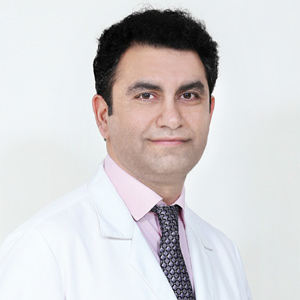
Treating Doctor
Dr. Bhushan Nariani
Orthopaedic Surgeon- Ankle surgery, Brachial plexus repair, Osteoarthritis, Avascular Necrosis of Hip Joint, Osteoarthritis (Most Common), Hip Fracture or Hip Dysplasia, Ankle Fracture, Deformed Knees, Meniscus Tear, Shoulder Arthritis, Torn Anterior, Osteonecrosis, Hip Osteoarthritis, Carpal Tunnel Syndrome Surgery, Hip/Ankle/Knee Injury, Rheumatic Arthritis, Injury or Fracture of the Hip Joint, Ankle Arthritis, Erb's Palsy, Bone Tumor in the Hip Joint, Brachial Plexus Avulsion, Shoulder Injury, Knee Osteoarthritis, Torn Rotator Cuff, Knee pain
BLK-Max Super Speciality Hospital New Delhi, India
18 Years of Experience
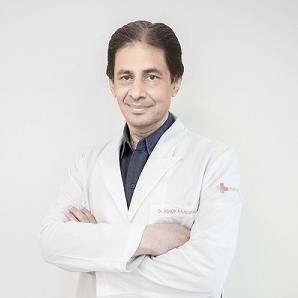
Treating Doctor
Dr. Ashok Rajgopal
Orthopaedic Surgeon- Joint Replacement Surgery, Knee Surgery, Anthroscopic Meniscus Surgery
Medanta-The Medicity, Gurgaon Gurgaon, India
42 Years of Experience
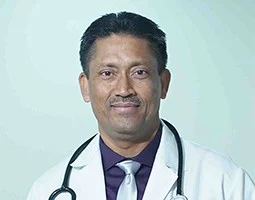
Treating Doctor
Dr. Yuvraj Kumar
Orthopaedic Surgeon- Spine Surgery, Trauma Surgery, Joint Replacement Surgery, Knee Replacement, Hip Replacement, Shoulder & Elbow Surgery, Joint Pain Treatment, Primary and Revision Knee & Hip Replacement, Hip Pain Treatment, Joint and Muscle Problems, Hip Arthroplasty, Joint Dislocation Treatment, Arthroscopy Procedure
Accord Super specialty Hospital Faridabad, India
24 Years of Experience
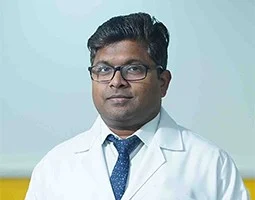
Treating Doctor
Dr. Rakesh Kumar
Orthopaedic Surgeon- Shoulder Replacement, Joint Replacement Surgery, Hip Replacement, ACL/PCL Reconstruction, Ankle Surgery, Cruciate Ligament Recosntruction, Meniscus Tear, Fracture Treatment, Rotator Cuff Surgery, Frozen shoulder Physiotherapy, Achilles tendon, Cartilage microsurgeries
Accord Super specialty Hospital Faridabad, India
20 Years of Experience
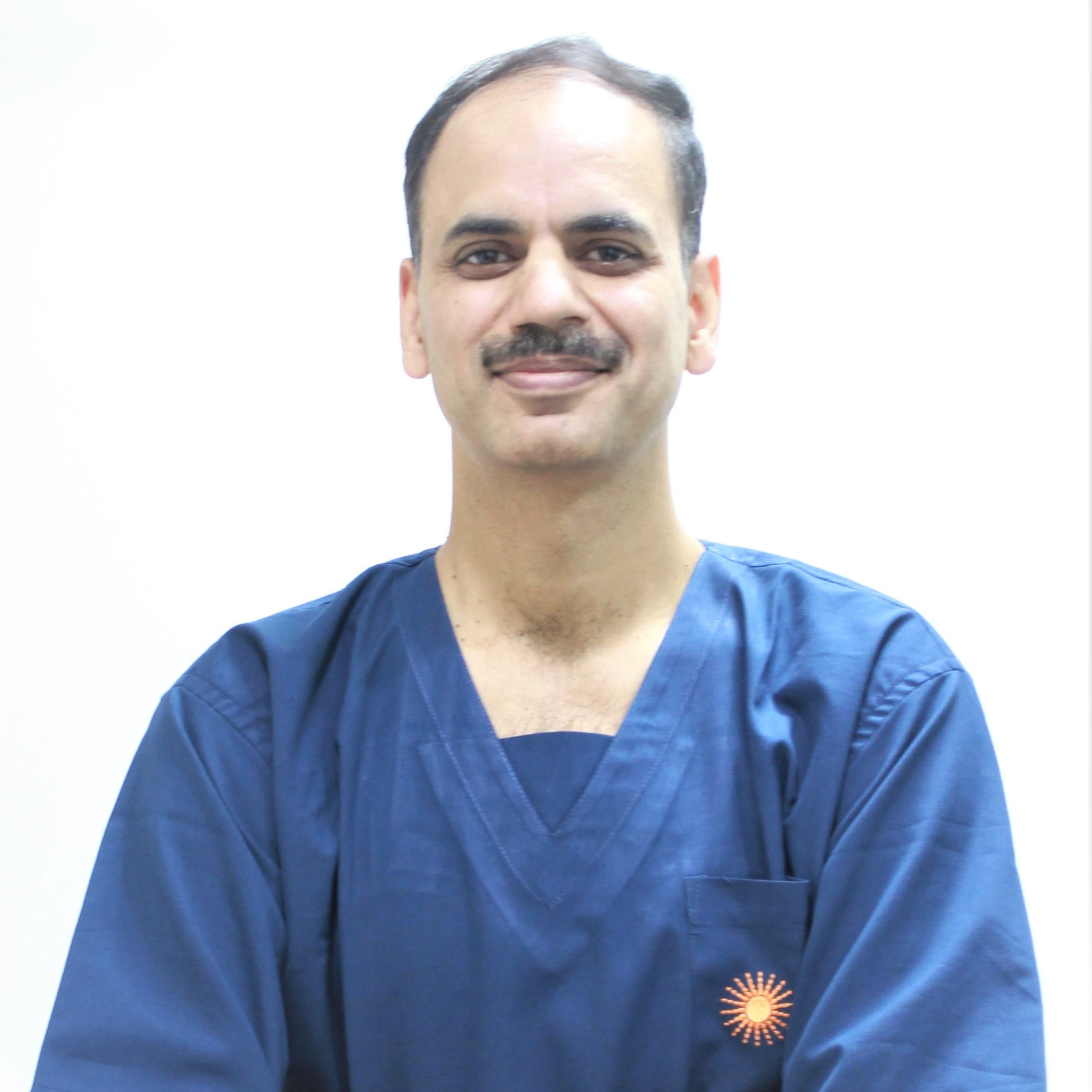
Treating Doctor
Dr. Sumit Batra
Orthopaedic Surgeon- Spine Surgery, Deformity correction, Spine fracture/ trauma, Disc Replacement ( Cervical /Lumber), Microdiscectomy, Knee Replacement, Total Knee Replacement, Total Hip Replacement, Complex Trauma Surgery Primary
Marengo Asia hospital, Faridabad Faridabad, India
24 Years of Experience

Treating Doctor
Dr. Vipin Tyagi
Orthopedist- Spinal Deformity correction, Correction of deformities, Spasticity, Joint Replacement Surgery, Wrist Problem, Reconstruction and Rehabilitation, Disc Slip, External Fixator, Reconstruction and Bone Lengthening, Cruciate Ligament Recosntruction
Medanta-The Medicity, Gurgaon Gurgaon, India
35 Years of Experience
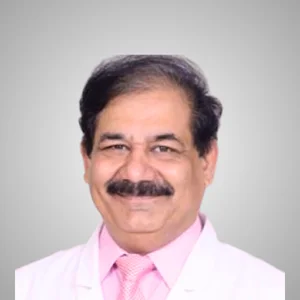
Treating Doctor
Dr. Anil Arora
Orthopaedic Surgeon- Knee Replacement, Total Knee Replacement, Complex and revision total knee replacement, Massive knee replacement for tumors, Primery/Complex/revision total hip replacement, Primary/revision shoulder and elbow replacement, Anthroscopic Meniscus Surgery, Anthroscopic ACL reconstruction
MAX Super Speciality hospital, Patpadganj Delhi New Delhi, India
33 Years of Experience
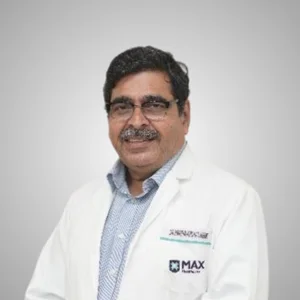
Treating Doctor
Dr. Harshavardhan Hegde
Orthopaedic Surgeon- Spine Injury, Functional Orthopedics, Joint Replacement Surgery, Knee Replacement, Hip Replacement, Neck and Spine Biopsy
Max Super Speciality Hospital New Delhi, India
30 Years of Experience
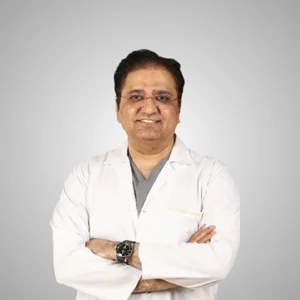
Treating Doctor
Dr. Hemant Sharma
Orthopedist- Musculoskeletal/Orthopedic Onco Surgery, Cerebral Palsy Treatment, Hip Disorders, Tumor Surgery, Spasticity, Joint Replacement Surgery, Wrist Problem, Sports Injuries, Column traumatology, Disk slip, Lower Extremity Wound Care, Hip Pain Treatment
Marengo Asia Hospital Gurgaon, India
23 Years of Experience
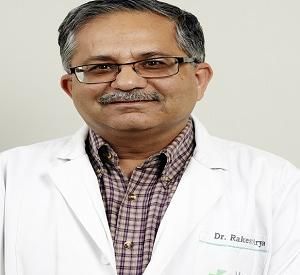
Treating Doctor
Dr Rakesh Chandra Arya
Orthopedist- Ankle surgery, Shoulder & Elbow Surgery, Sports Injuries Surgery, Joint Surgeries of knee, Patellectomy, Back and Neck Pain Management, Hand reconstruction surgery, Foot & Ankle Surgery
Max Super Speciality Hospital New Delhi, India
32 Years of Experience

